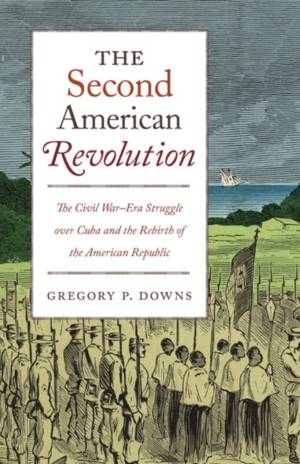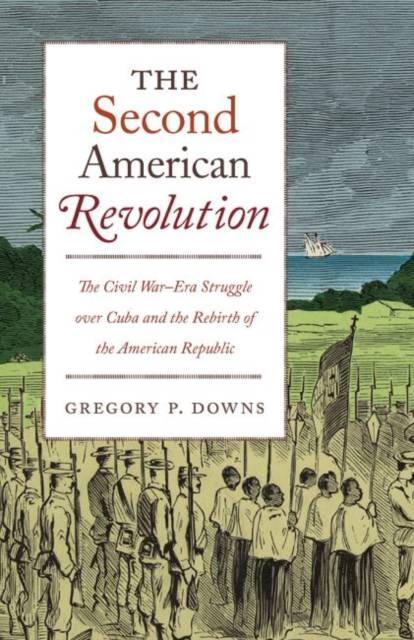
Bedankt voor het vertrouwen het afgelopen jaar! Om jou te bedanken bieden we GRATIS verzending (in België) aan op alles gedurende de hele maand januari.
- Afhalen na 1 uur in een winkel met voorraad
- In januari gratis thuislevering in België
- Ruim aanbod met 7 miljoen producten
Bedankt voor het vertrouwen het afgelopen jaar! Om jou te bedanken bieden we GRATIS verzending (in België) aan op alles gedurende de hele maand januari.
- Afhalen na 1 uur in een winkel met voorraad
- In januari gratis thuislevering in België
- Ruim aanbod met 7 miljoen producten
Zoeken
The Second American Revolution
The Civil War-Era Struggle Over Cuba and the Rebirth of the American Republic
Gregory P Downs
€ 45,95
+ 91 punten
Omschrijving
Much of the confusion about a central event in United States history begins with the name: the Civil War. In reality, the Civil War was not merely civil -- meaning national -- and not merely a war, but instead an international conflict of ideas as well as armies. Its implications transformed the U.S. Constitution and reshaped a world order, as political and economic systems grounded in slavery and empire clashed with the democratic process of republican forms of government. And it spilled over national boundaries, tying the United States together with Cuba, Spain, Mexico, Britain, and France in a struggle over the future of slavery and of republics.
Here Gregory P. Downs argues that we can see the Civil War anew by understanding it as a revolution. More than a fight to preserve the Union and end slavery, the conflict refashioned a nation, in part by remaking its Constitution. More than a struggle of brother against brother, it entailed remaking an Atlantic world that centered in surprising ways on Cuba and Spain. Downs introduces a range of actors not often considered as central to the conflict but clearly engaged in broader questions and acts they regarded as revolutionary. This expansive canvas allows Downs to describe a broad and world-shaking war with implications far greater than often recognized.
Here Gregory P. Downs argues that we can see the Civil War anew by understanding it as a revolution. More than a fight to preserve the Union and end slavery, the conflict refashioned a nation, in part by remaking its Constitution. More than a struggle of brother against brother, it entailed remaking an Atlantic world that centered in surprising ways on Cuba and Spain. Downs introduces a range of actors not often considered as central to the conflict but clearly engaged in broader questions and acts they regarded as revolutionary. This expansive canvas allows Downs to describe a broad and world-shaking war with implications far greater than often recognized.
Specificaties
Betrokkenen
- Auteur(s):
- Uitgeverij:
Inhoud
- Aantal bladzijden:
- 232
- Taal:
- Engels
- Reeks:
Eigenschappen
- Productcode (EAN):
- 9781469652733
- Verschijningsdatum:
- 25/11/2019
- Uitvoering:
- Hardcover
- Formaat:
- Genaaid
- Afmetingen:
- 165 mm x 241 mm
- Gewicht:
- 498 g

Alleen bij Standaard Boekhandel
+ 91 punten op je klantenkaart van Standaard Boekhandel
Beoordelingen
We publiceren alleen reviews die voldoen aan de voorwaarden voor reviews. Bekijk onze voorwaarden voor reviews.









